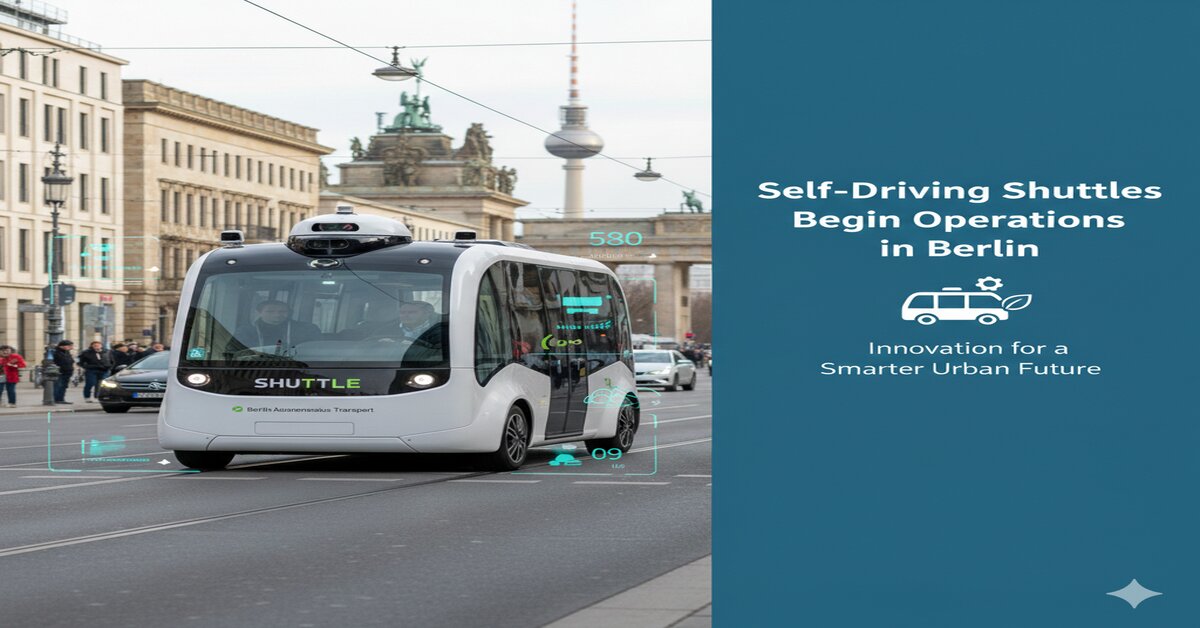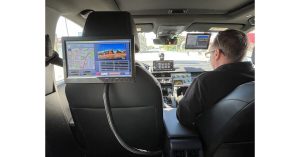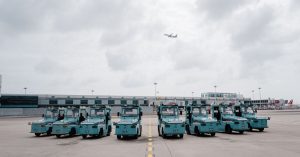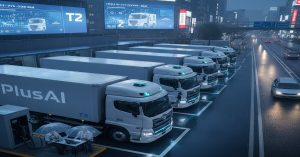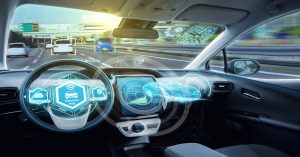Berlin has taken a major step toward the future of urban mobility with the deployment of the first ID. Buzz AD pilot vehicles on its public roads. These self-driving electric shuttles, developed by Volkswagen and equipped with Level 4 autonomous driving technology, are part of the ambitious Northwest Level 4 (NoWeL4) project. The initiative seeks to blend traditional public transport with flexible, on-demand autonomous services—laying the groundwork for what could become Germany’s largest fleet of autonomous vehicles integrated into a city’s public transportation network.
Each shuttle features advanced software and service systems provided by Volkswagen subsidiary Moia, which specializes in shared mobility solutions. The pilot project, running under the leadership of BVG—Berlin’s public transport authority—represents an important milestone in the country’s transition toward safer, more inclusive, and efficient mobility options.
“This marks the beginning of a new era,” said Henrik Falk, CEO of BVG. “Autonomous vehicles will enable us to create a completely new mobility ecosystem that meets people’s individual needs—regardless of their life situation.”
The NoWeL4 project has received €9.5 million (US$11 million) in funding from Germany’s Federal Ministry of Transport, underscoring the government’s commitment to advancing driverless technology. The first phase involves deploying five ID. Buzz vehicles across a 15-square-kilometer test area spanning the districts of Spandau, Charlottenburg-Wilmersdorf, and Reinickendorf.
Within this zone, the autonomous shuttles will serve approximately 80 stops, operating freely rather than following fixed routes. Although the vehicles are designed to drive independently, a safety operator will remain on board during the testing phase to intervene if necessary. At the same time, a remote control center will continuously monitor the fleet to ensure operational safety and reliability.
According to the project timeline, passenger test rides are set to begin in the first half of 2026, marking the next critical stage in the program’s rollout. If successful, the trial could pave the way for large-scale adoption of autonomous public transport across the city.
“Autonomous driving is the key to the mobility of the future,” said Federal Transport Minister Patrick Schnieder. “It represents more efficiency and inclusion in road transport. Projects like the planned autonomous shuttles in northwest Berlin are truly groundbreaking.”
Berlin’s Senator for Mobility, Transportation, Climate Protection, and Environment, Ute Bonde, emphasized the project’s potential to transform daily commuting: “Autonomous shuttles that operate reliably and flexibly are essential vehicles for the mobility of tomorrow.”
Sascha Meyer, CEO of Moia, also highlighted the significance of the launch, stating, “We’re showing that autonomous mobility made in Europe is already a reality. Together with BVG, we’ve reached an important milestone—bringing our complete solution of vehicles, software, and services onto Berlin’s streets.”
The NoWeL4 project will continue through 2027, after which autonomous transportation is expected to become a permanent fixture in Berlin’s public transit system. With the success of this initiative, the city could soon serve as a model for how autonomous vehicles can seamlessly integrate into urban infrastructure—enhancing accessibility, sustainability, and efficiency for all.

